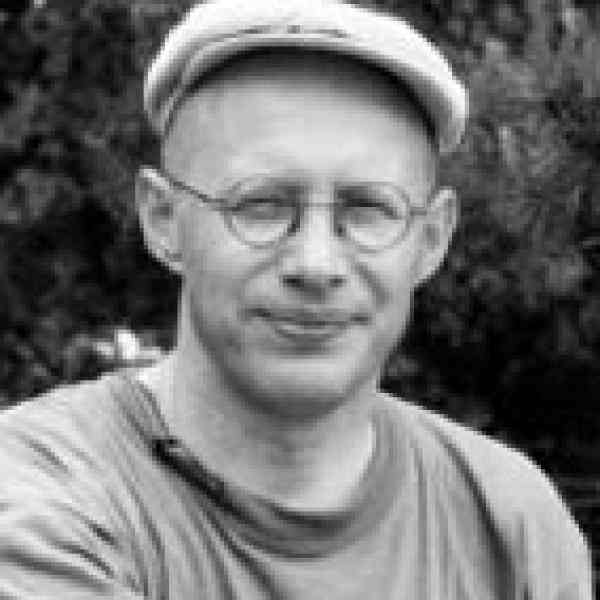Introduction
With over a decade's experience dealing with drug-addicted people, Jacek Alaba has seen first hand the failings of the Communist policy of removing addicted people from Polish society. He is pioneering a community and work-rooted approach, which gives addicts a sense of dignity and responsibility.
The New Idea
As it does worldwide, drug addiction and the concurrent threat of HIV/AIDS transmission weighs upon Polish society, made worse by the high rate of re-addiction that follows conventional treatment programs. Jacek Alaba has developed an alternative treatment program that focuses especially on reducing the risk of relapse. It is based upon his insight that treated addicts resume their drug usage because they haven't learned how to cope with the stresses that trigger their addictive reactions. To fill this gap, Jacek has developed a community-based program that places recovering addicts in real-life situations while providing them with individualized treatment programs devised by a team of mental health workers, vocational trainers and peer counselors. A patient is housed in one of the Warsaw apartments or houses run by Jacek's organization and is supervised by peer counselors. While in the program, patients are expected to manage their own maintenance–cooking their own meals, washing the dishes, cleaning. They are also expected to pay rent and hold a job. While in treatment, a patient's day is structured to include individual and group counseling and vocational training. When patients find it difficult to cope, they have the opportunity to work with counselors. Jacek's program seeks to give its patients insights into their own addiction "trigger mechanisms" and the skills and inner strength they will need to resist drugs. He does, however, augment his program with follow-up contact with patients who have completed treatment. Jacek's drug treatment program has a community-development dimension as well. He trains his patients in the skills required to renovate buildings in need of rehabilitation, which the government makes available to him. The project gives the patient a job, he or she learns job skills of use after leaving treatment, the buildings become available as housing for patients and economically depressed neighborhoods are renovated in the process.
The Problem
Drug addiction continues to grow in Poland. Some estimates attest to a rate of addictions approaching 350,000 people per year. Sadly, 80 percent of all intravenous drug addicts in Poland also eventually become infected with the HIV virus. However, current treatment facilities and treatment programs are unable to deal with the growing addicted population and also do not effectively address the needs of the patients.
In the past, drug addicts were treated as criminals, because they were considered dangerous to the ideals of a "perfect" socialist society. Indeed, the government denied that an addiction problem existed. As a result, the main concern of officials was to remove drug addicts from the community and place them in institutions where they received little counseling or effective treatment.
Conventional treatment programs in Poland still remove drug addicts from society and place them in isolated institutions, where interaction with the outside world is severely restricted. Jacek believes that this approach fails to prepare patients to reenter society. Once they leave the program, addicts find it difficult to cope with the stress of life on the outside. This leads to a high rate of re-addiction: 80 percent of addicts who use traditional treatment programs relapse within two years.
The Strategy
Jacek operates a community-based treatment program, and he strategically mobilizes a community's resources to help drug addicts battle their addictions. In Warsaw, where he lives and began his project, he founded an organization called the Association for Social Aid; he and his colleagues there have worked hard to marshal local governments, community leaders, the business community and hospitals. Jacek has persuaded 13 local governments to help: they were able to produce 36 apartments for him to use in the early stages of his work, and a steadily increasing number continue to materialize. Members of the business community help with vocational training and establishing profitable business ventures. Currently, the Association is managing several businesses, including T-shirt and leather goods factories. Profits from these ventures help to cover the organization's expenses and the patient-workers' salaries. The small businesses run by the recovering addicts in turn revitalize depressed urban areas as do the renovations carried out by Jacek's clients on local buildings. All the while, the addicts are learning job skills and real-life coping strategies.
Jacek and his colleagues have developed relationships with several hospitals around the country. These hospitals refer patients to Jacek's program and provide volunteer doctors and mental health workers. As he has developed an arm of his program dedicated to young people, his referral sources also send him youthful addicts.
Jacek is gathering proof that his community-based approach to addiction treatment is the most effective long-term solution. He plans to present evidence of lower re-addiction rates to the national government and hopes it will adopt his program throughout the country. He has already presented his work at several regional conferences. Ultimately, he hopes his approach will become a model throughout the former Soviet bloc.
The Person
Jacek was raised to believe in the spirit of charity and giving, a belief that he carries with him to this day. He studied social work while in university. He hoped to work within the system to create positive change and help those in need.
As a student he discovered that addicts were a segment of Polish society in desperate need. He has been working with them since 1983. He became disillusioned by traditional forms of treatment available in Poland and has made it his life's goal to improve the quality of treatment. He has traveled throughout the United States and Europe to learn new methods of treatment.
He is a married father of one, and when not working, he enjoys rock climbing.
